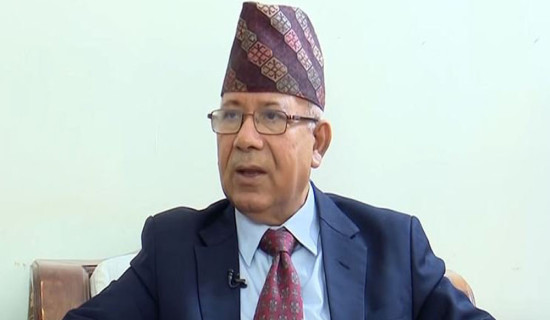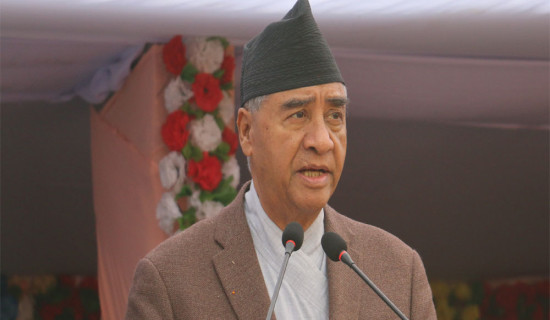- Friday, 6 June 2025
Clear Farmers' Dues
Dairy farmers and the milk industry are of prime importance for the people's livelihood and rural development. The dairy sector contributes significantly to Nepal's GDP by providing job opportunities and food security, particularly in rural and suburban areas. However, dairy farmers in Chitwan are facing tremendous financial pressure as they have not received payments of Rs. 800 million from the government and private milk industries. These arrears of six months have compelled them to take loans to maintain their cattle even while supplying milk products. The hardships they are facing also imply a systemic fault. It is an enormous imbalance between effort and return, compounded by the lack of effective government intervention.
State-owned Dairy Development Corporation (DDC), established to help dairy farmers, owes nearly half of this amount. If the government offices are not even able to fulfil their minimum requirement, where can one hope to find accountability from the private sector? Poor sales are not due to poor consumer demand. Dairy products, and milk especially, remain in strong demand, especially in summer. And yet, the same sections are already threatening a financial freeze, the authorities even browbeat farmers to suspend milk collection if the latter ask for payment. This is a sheer violation of business ethics and abuse of their position in the supply chain. This delay in payment is more than a financial loss. It threatens food security and rural livelihoods and is a source of increasing desperation for farmers.
Farmers are being pushed to the wall. For them, no option is left other than calling a strike to get reimbursement. If the strike does happen, the ripple effect will be felt across the width and breadth of the country, affecting price, supply, and the whole dairy chain. Meanwhile, a crippling shutdown of Chitwan's dairy industry due to a milk shortage compounds the crisis. There is an irony – farms contain surplus milk but factories lack it. This tells a lot about inherent inefficiencies in coordination and distribution. All the milk is being diverted through direct sales or being used in yoghurt production due to seasonal demand, but that is no reason to shut down processing units. It reflects the absence of planning and communication among cooperatives, processors, and the market.
Chitwan farmers are in crisis, but Lamjung district farmers are doing well in milk production. The asymmetry reflects the absence of a national policy to smoothly run and stabilise the dairy production and supply process. Lamjung, even though it has surplus milk, lacks processing units and thus supplies raw milk or converts it into ghee. This underscores the urgency to invest in the country's infrastructure so that value addition, as opposed to quantities of supply, is attained in all districts. The government must work now to unlock payments, bring accountability to private and public dairies, and have a system in place to rescue farmers from such exploitation in the future.
Those policies that guarantee timely payment cycles, ensure market access, and encourage local processing must be given top priority. Fair treatment of producers is necessary for sustainable dairy farming. Ensuring the equitable treatment of dairy farmers, including fair compensation and ethical industry practices, is essential to end this recurring problem. The government must not delay in addressing this issue, as it may further dissuade the people from joining the dairy production and farming sector, which holds huge potential to transform the national economy and bring prosperity to the people.








-square-thumb.jpg)








